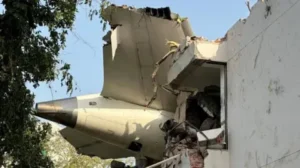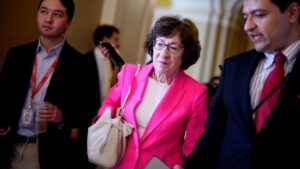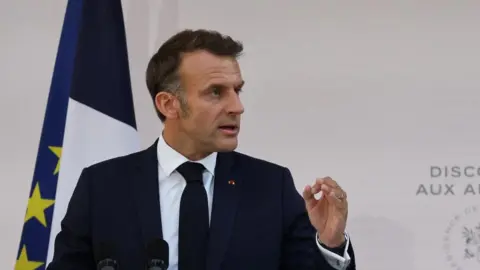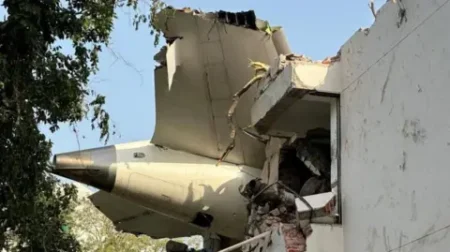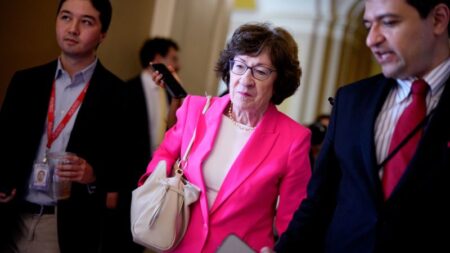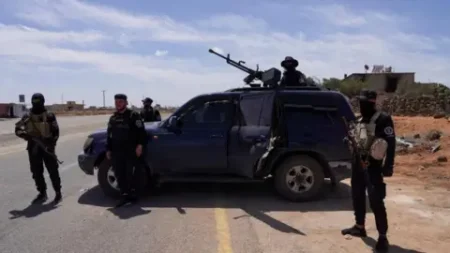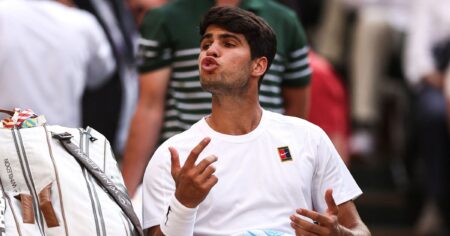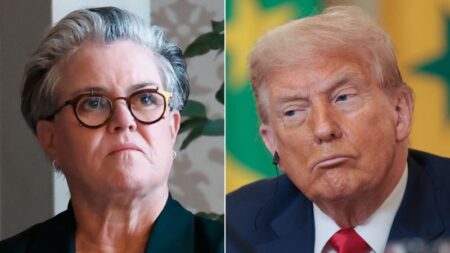Emmanuel Macron, the French President, has recently articulated a significant concern regarding the challenges faced by Europe, asserting that “Europe’s freedom faces the greatest threat” since World War II. This commencement of heightened awareness regarding European security comes in light of escalating geopolitical tensions and the unavoidable complexities associated with current global dynamics.
In a speech directed at military leaders in Paris, Macron emphasized that Europe is currently at a critical juncture, necessitating a reevaluation of defense strategies and resource allocations. He proposed an increase in France’s defense budget by €3.5 billion (£3 billion) next year, followed by an additional €3 billion in 2027. This strategic budget enhancement indicates a proactive stance in light of perceived threats from nations like Russia. Macron explicitly condemned what he termed “imperialist policies” and pointed out the annexation actions undertaken by various powers, highlighting the threat that Russia poses as it continues its aggressive military actions.
Macron’s reference to the ongoing conflict in Ukraine, triggered by Russia’s full-scale invasion in February 2022, underscores the urgency of this situation. By framing Russia’s actions as a real assault on European sovereignty, he rallies support for enhanced military readiness and capabilities. This backdrop of increasing strain on European stability elevates France’s strategic necessity to bolster its military spending, as Europe braces itself against external pressures.
Moreover, Macron has taken steps to expedite plans for bolstering France’s military infrastructure, vowing to double the military budget by 2027, which was initially planned to occur later. With the defense budget increasing from €32 billion in 2017 to a projected €64 billion, these proposals still await the approval of the French government before implementation. Macron finished his address, notably timed before Bastille Day, with an impactful statement asserting, “To be free in this world, you must be feared. To be feared, you must be powerful.”
This declaration resonates strongly given the prevailing conditions in global politics, where nuclear armament and ongoing conflicts have significantly returned to the forefront of international relations. Macron’s assertions were not made in isolation; they form part of a broader narrative that includes references to the actions of the United States in the Middle East, as well as ongoing tensions between India and Pakistan, and sporadic American support for Ukraine.
In response to prevalent global security concerns, NATO members have recently committed to increasing defense spending to 5% of GDP annually, up from the previous target of 2%. This is indicative of a collective recognition among Western nations of the necessity to prepare for potential conflicts and to fortify their military capacities.
Additionally, the sentiment of vulnerability to an “enduring” threat from Russia has been echoed by the head of the French army, General Thierry Burkhard, who described France as perceived by Russia as a “main adversary in Europe.” Burkhard emphasized that the ongoing conflict in Ukraine is pivotal in determining the future ranking of European nations in the global landscape.
As the French government, led by Prime Minister Francois Bayrou, prepares to review its budget shortly, the outcomes of these discussions may well shape the continent’s capacity to respond to escalating threats and instabilities. The proposal for increased military readiness and spending signifies not just France’s but Europe’s broader effort to confront the security challenges looming over the continent. In this tense climate, Macron’s leadership and actionable plans are fundamental in determining the trajectory of European integration and security for years to come.

